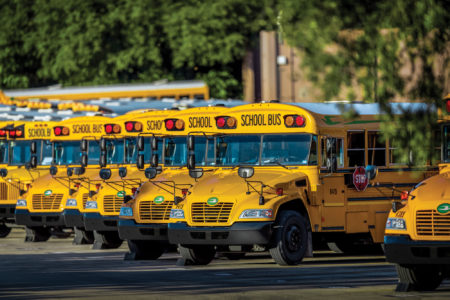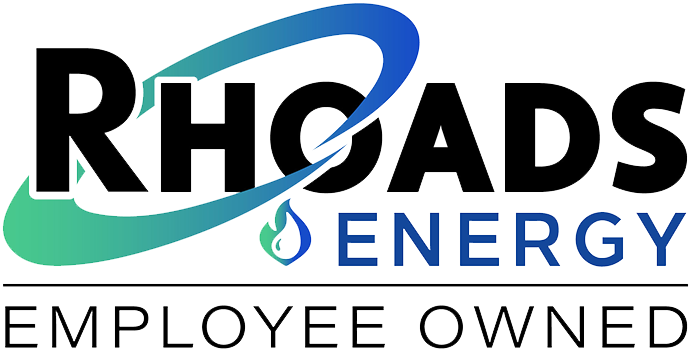Propane School Buses: The Verdict is In

With too little fanfare, propane school buses have rapidly gained a foothold in districts across the nation. There are now more than 22,400 propane school buses in operation across the country, according to the Propane Education Research Council. In Pennsylvania, we’re leading the charge, with over 1,300 propane buses on the road. So, what’s driving the trend?
Since 2015 , Rhoads Energy has worked with several districts, providing guidance as they converted to propane fleets. That experience has revealed the numerous advantages of propane buses:
- Huge fuel savings Propane currently costs about half as much as diesel, which adds up to significant savings that districts can use for teachers, resources or educational tools. Bonus: propane-powered fleets run on a fuel produced here in Pennsylvania.
- Lower cost of ownership Over time, districts learn that it’s cheaper to maintain propane-powered school buses. Unlike diesel technology, propane does not require a complex emissions system or additional filters to comply with clean air standards. Propane fleets enable districts to avoid the downtime (and labor costs) required to clean diesel particulate filters. Check out a Fleets Cost Calculator to determine the cost and ROI of implementing propane autogas vehicles into your fleet.
- The clean alternative Propane buses are also notable for what they don’t produce: a black cloud of diesel smoke at every bus stop. Switching to environmentally friendly propane buses eliminates an estimated 80% of the smog-producing hydrocarbon generated by diesel engines.
- Better for students Ever stood next to the tailpipe of a diesel bus? It’s not pleasant. Diesel exhaust produces particulate matter that aggravates asthma and other conditions. With propane, there’s no smell or particulate matter. Another benefit: propane buses are much quieter, enabling students to converse and drivers to hear what’s happening inside and outside the bus.
- Control of fuel supply One overlooked advantage: the option of on-site fueling. A propane fueling facility on district property offers control and convenience. It saves time, man-hours and fuel because drivers no longer need to fuel at an off-site station that could be miles away.
- Superior winter performance On frigid days, diesel engines can be difficult to start. When they do turn over, diesel buses require long idling periods to warm up, burning fuel and generating emissions. Diesel engines also require fuel additives that drive up operational costs. Fleet operators and drivers report that, with propane engines, they don’t have to contend with any of these hassles. They start, then they go.
CLEARING THE HURDLES
So, given all these advantages, why haven’t more of Pennsylvania’s 500 school districts opted for propane fleets?
Over the past several years, Rhoads Energy has spoken with dozens of school officials about the transition to propane. During that time, we’ve identified three primary obstacles to conversion. First, most districts operate transportation under multi-year contracts, which means many districts haven’t yet had an opportunity to explore propane as an option.
Second, propane buses have had a relatively stealthy entry into the school transportation marketplace, even though they’ve been on the road for many years. Some districts are simply unaware that the option exists — or they haven’t been provided the option during contract renewal discussions.
Finally, some districts are still operating under misconceptions about propane fleets: that they’re too expensive, they’re difficult to maintain, they require a complicated build-out of fueling infrastructure and they involve significant retrofitting of maintenance garages. We find that, when school officials take time to delve a bit more deeply into the process of transitioning to propane, they discover that propane buses actually cost less to operate and maintain. They also learn that adding on-site propane fueling is less complex than they might initially believe, and it comes with advantages: convenience, time savings, and more.
Those obstacles to propane conversion are hardly insurmountable. In fact, propane school buses are no longer an idea that might happen in the future. Right now, thousands of students across Pennsylvania ride propane buses every day — buses that save taxpayers money and improve air quality. The only real question left is: Why aren’t more districts converting outdated diesel fleets to clean propane power?
Visit the Learning Resources for Propane School Transportation to explore more resources about how propane autogas would benefit your school district.
